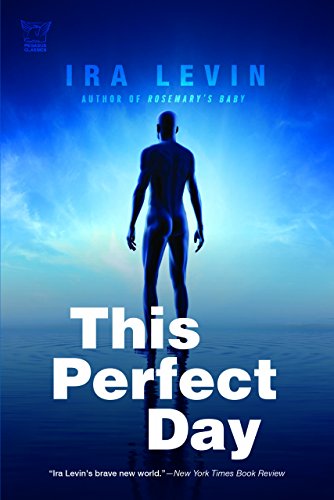So basically Merriam-Webster is lying? Oh! Cruel shitfuckery!Skulduggery « The Word Detective
Something's up in the underground. Dear Word Detective: What is the origin of "skullduggery"? Is it related to grave robbing as in the 1800s for medical use of cadavers? Or is it much older? -- Lyn Kin. Ah, yes, body-snatching.www.word-detective.com
Probably nothing to do with skulls, more likely from the Scots word sculduddery/sculduderi ( https://www.dsl.ac.uk/entry/snd/sculduddery ) with scul/sculd possibly coming from the Norse word relating to guilt.
You are using an out of date browser. It may not display this or other websites correctly.
You should upgrade or use an alternative browser.
You should upgrade or use an alternative browser.
On the cromulency of pedancy and other questions of English languacy, a quest for our common joy and enlightenment.
- Thread starter Confuzzled
- Start date
Mmmh. So there's a word that means both child (like son or daughter) and Debt, fault, guilt. They say it's not etimologically related, though, just coincidence.Seeing the resemblance to German Schuld I thaught it suggested that that's wider spread in germanic languages and English probably had its own variant, before the English wanted to be more like French kings. And lo and behold:
shild - Wiktionary, the free dictionary
en.wiktionary.org
I learned a new word today: chromostereopsis
Chromo stereo opsis = color stereo likeness.
property of our vision system where cones reacting to red colour are around 64% of all cones and reacting on blue are 2 percent and each of them has different focal point.
This being a handheld/software site, here is the source (not mine, of course, my code would never compile, or crash and make your machine catch fire)
Chromo stereo opsis = color stereo likeness.
property of our vision system where cones reacting to red colour are around 64% of all cones and reacting on blue are 2 percent and each of them has different focal point.
This being a handheld/software site, here is the source (not mine, of course, my code would never compile, or crash and make your machine catch fire)
Last edited:
spud42
Very Active Member
saw this series years ago. According to this the roots of English start with Frisian. Somewhere in the norther Netherlands.

What is Anglish?
The aim of Anglish is: English with many fewer words borrowed from other tongues. Due to the fundamental changes to our language, to say that English people today speak Modern English is like saying that the French speak Latin. The fact is that we now speak an international language. The Anglish...

Linguistic Purism And The Push For Anglish, The English Throwback
Proponents of Anglish look back with forlorn eyes to the bygone age of Anglo-Saxon and Beowulf, before the Middle English of Canterbury Tales.
Phlyra
FLOSSing
- Joined
- Jul 25, 2019
- Messages
- 1,517

What is Anglish?
The aim of Anglish is: English with many fewer words borrowed from other tongues. Due to the fundamental changes to our language, to say that English people today speak Modern English is like saying that the French speak Latin. The fact is that we now speak an international language. The Anglish...anglish.fandom.com

Linguistic Purism And The Push For Anglish, The English Throwback
Proponents of Anglish look back with forlorn eyes to the bygone age of Anglo-Saxon and Beowulf, before the Middle English of Canterbury Tales.www.babbel.com
Many fewer words? Don’t they mean: far fewer words?
Confuzzled
Very Active Member
- Joined
- Oct 1, 2018
- Messages
- 302
Many fewer words? Don’t they mean: far fewer words?
Edward Lear - the JumbliesFar and few, far and few,
Are the lands where the Jumblies live;
Their heads are green, and their hands are blue,
And they went to sea in a Sieve.
No reason for posting, just got reminded of it.
Phlyra
FLOSSing
- Joined
- Jul 25, 2019
- Messages
- 1,517
Well since it’s this thread, first I’d start with:
And then I’d go:Say, in the context of trailing some sensor carrier at sea I'd provide you with anUI to check on/controllthat carrier. If I'dlabelled a value like "150 m" with "veer", what would you make of it?
WTF is “veer” in this context?! Does the ship’s captain need to veer off course simply because they see “150m”? Or is this “veer” more like “four” in German? In which case, how does four = 150?If I labelled a value like "150 m" with "veer"
levi
Still fresh, damnit!
I wonder if he means near, rather than veer?
Confuzzled
Very Active Member
- Joined
- Oct 1, 2018
- Messages
- 302
I would wonder what you meant.Question for native English speakers:
Say, in the context of trailing some sensor carrier at sea I'd provide you with an UI to check on/controll that carrier. If I'd label a value like "150 m" with "veer", what would you make of it?
Most people who do not have a particular metorological background (including the knowledge necessary for operating ships and boats at sea) would regard veer as meaning a type of turn or change of direction, and no more than that. People who need to listen to the Shipping Forecast put particular meaning on the words 'veering' and 'backing'. Using the Wiktionary definition, veering:"(intransitive, of the wind) To shift in a clockwise direction (if in the Northern Hemisphere, or in a counterclockwise direction if in the Southern Hemisphere)." The language used in Shipping Forecasts is carefully controlled to have standard meanings, and the glossary is here: UK Meteorological Office: Marine Forecasts glossary:
Veering
The changing of the wind direction clockwise, e.g. SW to W
If you are trying to indicate that the towed sensor is off-axis with respect to the imaginary line extended backwards by the keel of the ship, I would say off-axis by <n> metres to port or off-axis by <n>metres to starboard.
Djoga'Ro
moonstruck
- Joined
- Apr 3, 2016
- Messages
- 2,625
I guess, I have my answer. I would have meant by that, that there's 150 m of towing line given off of the drum. I'd have prefered that term for its similarity to the German verb fieren, which means to give towing line. This made me think it was viable: (And yes, just now I recognized the noun has nothing to do with the Dutch-y etymology and that it says instance there, not distance - me being tired, I guess)
 en.wiktionary.org
Still, sure I was not.
en.wiktionary.org
Still, sure I was not.
What would be a better choice? (Every correct one. I know.) I don't like slackened for a towing line, but maybe my perception of that word's meaning is too narrow. I also wouldn't like to spend too much real estate on that label.
My pick now would be "line given". Or "umb. out"? (as in umbilical)
(as in umbilical)
veer - Wiktionary, the free dictionary
What would be a better choice? (Every correct one. I know.) I don't like slackened for a towing line, but maybe my perception of that word's meaning is too narrow. I also wouldn't like to spend too much real estate on that label.
My pick now would be "line given". Or "umb. out"?
Confuzzled
Very Active Member
- Joined
- Oct 1, 2018
- Messages
- 302
I think the correct term would be 'paid out' https://en.wiktionary.org/wiki/pay_outI guess, I have my answer. I would have meant by that, that there's 150 m of towing line given off of the drum. I'd have prefered that term for its similarity to the German verb fieren, which means to give towing line. This made me think it was viable: (And yes, just now I recognized the noun has nothing to do with the Dutch-y etymology and that it says instance there, not distance - me being tired, I guess)
Still, sure I was not.veer - Wiktionary, the free dictionary
en.wiktionary.org
What would be a better choice? (Every correct one. I know.) I don't like slackened for a towing line, but maybe my perception of that word's meaning is too narrow. I also wouldn't like to spend too much real estate on that label.
My pick now would be "line given". Or "umb. out"?(as in umbilical)
See also for examples of the use of pay out/paid out:
Wikipedia: Glossary of Nautical Terms: knot https://en.wikipedia.org/wiki/Glossary_of_nautical_terms#knot
Wikipedia: Knot (Unit): Origin https://en.wikipedia.org/wiki/Knot_(unit)#Origin
Wikipedia: Glossary of Nautical Terms: bitter end https://en.wikipedia.org/wiki/Glossary_of_nautical_terms#bitter_end
for examples of the use of pay out/paid out
Phlyra
FLOSSing
- Joined
- Jul 25, 2019
- Messages
- 1,517
I’m curious, what’s the project?I guess, I have my answer. I would have meant by that, that there's 150 m of towing line given off of the drum. I'd have prefered that term for its similarity to the German verb fieren, which means to give towing line. This made me think it was viable: (And yes, just now I recognized the noun has nothing to do with the Dutch-y etymology and that it says instance there, not distance - me being tired, I guess)
Still, sure I was not.veer - Wiktionary, the free dictionary
en.wiktionary.org
What would be a better choice? (Every correct one. I know.) I don't like slackened for a towing line, but maybe my perception of that word's meaning is too narrow. I also wouldn't like to spend too much real estate on that label.
My pick now would be "line given". Or "umb. out"?(as in umbilical)
Djoga'Ro
moonstruck
- Joined
- Apr 3, 2016
- Messages
- 2,625
A trailed device to watch fish from behind the net (for research, more selective fishing), if I got that right. It can actively rise and dive, can sense its distance to the bottom (at an angle) and has a camera up front.
I'm to write the operator's controls to watch some fun values and the cam feed and set a max diving depth and give a setpoint for ground clearance. After it took me three quarters of the year to establish a bare minimum library that let's me communicate with ROS2 nodes - without me employing the ROS2 framework, but "just" FastDDS -, I need to speed things up. So I write a rather static application just for this device. After that, I want to do a generic one. So that for future devices only a custom configuration needs to be made.
I'm to write the operator's controls to watch some fun values and the cam feed and set a max diving depth and give a setpoint for ground clearance. After it took me three quarters of the year to establish a bare minimum library that let's me communicate with ROS2 nodes - without me employing the ROS2 framework, but "just" FastDDS -, I need to speed things up. So I write a rather static application just for this device. After that, I want to do a generic one. So that for future devices only a custom configuration needs to be made.
Phlyra
FLOSSing
- Joined
- Jul 25, 2019
- Messages
- 1,517
Neat! Is that in conjunction with Hampiðjan?A trailed device to watch fish from behind the net (for research, more selective fishing), if I got that right. It can actively rise and dive, can sense its distance to the bottom (at an angle) and has a camera up front.
I'm to write the operator's controls to watch some fun values and the cam feed and set a max diving depth and give a setpoint for ground clearance. After it took me three quarters of the year to establish a bare minimum library that let's me communicate with ROS2 nodes - without me employing the ROS2 framework, but "just" FastDDS -, I need to speed things up. So I write a rather static application just for this device. After that, I want to do a generic one. So that for future devices only a custom configuration needs to be made.
Hello fellow Linguists. I have a Quest, should you choose to participate in it.
The answer is at the end, hidden.
Before you start, write down your start time so you can track how many minutes (seconds?) you took with your google-fu (or duckduck-fu, or bing-fu, or altavista-fu, or etc...)
I'm searching for a book. the book has one phrase that is used all over: "Don't thank me, thank uni."
The author is a man. The protagonist's nickname is Chip.

 malwarwickonbooks.com
Here's an introduction, first about the Author, then a brief explanation of the book (with huge spoilers but does not give away everything, and it's insightful):
malwarwickonbooks.com
Here's an introduction, first about the Author, then a brief explanation of the book (with huge spoilers but does not give away everything, and it's insightful):
Here you get read part of the book, just to entice you reading it (and it contains less spoilers than the previous video):
The book has an audiobook on the net.
I find the quality as good as, or even better, than other novels than, say 1984 in story building. Although not with it's flaws.
It's oh so similar to: https://en.wikipedia.org/wiki/Brave_New_World
Which in my eyes is a better depiction of the future.
Good read if you like these type of stories.
And to stay somewhat on topic: Is it cromulent to say "thank you in advance", just to save one empty email/msg thanking afterwards.

 macademic.org
macademic.org
The answer is at the end, hidden.
Before you start, write down your start time so you can track how many minutes (seconds?) you took with your google-fu (or duckduck-fu, or bing-fu, or altavista-fu, or etc...)
I'm searching for a book. the book has one phrase that is used all over: "Don't thank me, thank uni."
The author is a man. The protagonist's nickname is Chip.

A superb tale of a future where artificial intelligence rules
Centuries in the future, the people of Earth live under the control of an artificial intelligence called UniComp. A century and a half earlier, the
Here you get read part of the book, just to entice you reading it (and it contains less spoilers than the previous video):
The book has an audiobook on the net.
I find the quality as good as, or even better, than other novels than, say 1984 in story building. Although not with it's flaws.
It's oh so similar to: https://en.wikipedia.org/wiki/Brave_New_World
Which in my eyes is a better depiction of the future.
Good read if you like these type of stories.
And to stay somewhat on topic: Is it cromulent to say "thank you in advance", just to save one empty email/msg thanking afterwards.

Never end your email with “Thanks in advance”
There is a new trend in email writing to send someone a request and then sign it with “Thanks in advance.” or even worse “Thanks in advance!!!”. I find this trend bordering …
 macademic.org
macademic.org
TeDaDeS
Forum Addict!
It was my first hit on google when searching for it. Probably it's because you summarized all the important keywords.Hello fellow Linguists. I have a Quest, should you choose to participate in it.
The answer is at the end, hidden.
Before you start, write down your start time so you can track how many minutes (seconds?) you took with your google-fu (or duckduck-fu, or bing-fu, or altavista-fu, or etc...)
I'm searching for a book. the book has one phrase that is used all over: "Don't thank me, thank uni."
The author is a man. The protagonist's nickname is Chip.
Aww... my Google did show other stuff first... Well... ting ting, we have a winner! *croud goes wild*It was my first hit on google when searching for it. Probably it's because you summarized all the important keywords.
First price to @TeDaDeS: A Pyra do-it-yourself NFT!!!
Here is the link: https://beincrypto.com/learn/how-to-make-an-nft
Congratulations!
Similar threads
- Replies
- 50
- Views
- 10K
- Replies
- 284
- Views
- 62K
- Replies
- 2
- Views
- 8K
- Replies
- 79
- Views
- 15K

